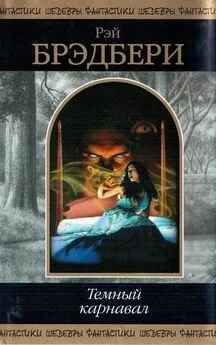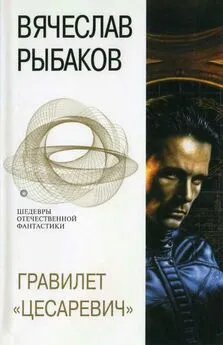Владимир Орловский - Машина ужаса [Фантастические произведения]
- Название:Машина ужаса [Фантастические произведения]
- Автор:
- Жанр:
- Издательство:Leo
- Год:2018
- ISBN:нет данных
- Рейтинг:
- Избранное:Добавить в избранное
-
Отзывы:
-
Ваша оценка:
Владимир Орловский - Машина ужаса [Фантастические произведения] краткое содержание
Машина ужаса [Фантастические произведения] - читать онлайн бесплатно полную версию (весь текст целиком)
Интервал:
Закладка:
The room was topsy-turvy. Two table-drawers Were pulled out and their contents were littered all over the floor. The thieves, it seemed, were pressed for time, for they had left the others undisturbed. But worst of all was the breaking open of the fireproof safe and the emptying of one of its compartments.
Something must have frightened the night intmders, pouting them into flight before they had succeeded in completing their work, for they left many traces behind: a handkerchief bespattered with dirt and ashes; drops of blood at the safe, apparently from excoriations on the hands; and scraps of newspapers of the preceding day. There were no tracks to be found in the garden. The Police Commissioner and a detective summoned by the professor, nodded their heads approvingly, inspected and examined everything, put what was of interest into their brief-cases, and left, to return shortly with a police dog. The hound jumped out through the window, leading his guides towards the stone wall, in which they found a large hole covered up with bushes. From there he led them into the garden and then into one of the crowded streets of Berlin. In a word, everything turned out to be just as it always happens in similar cases, but Flinder could not overcome the grief and excitement, even when the agents of the Police Department assured him that everything, so far, was progressing in their favor.
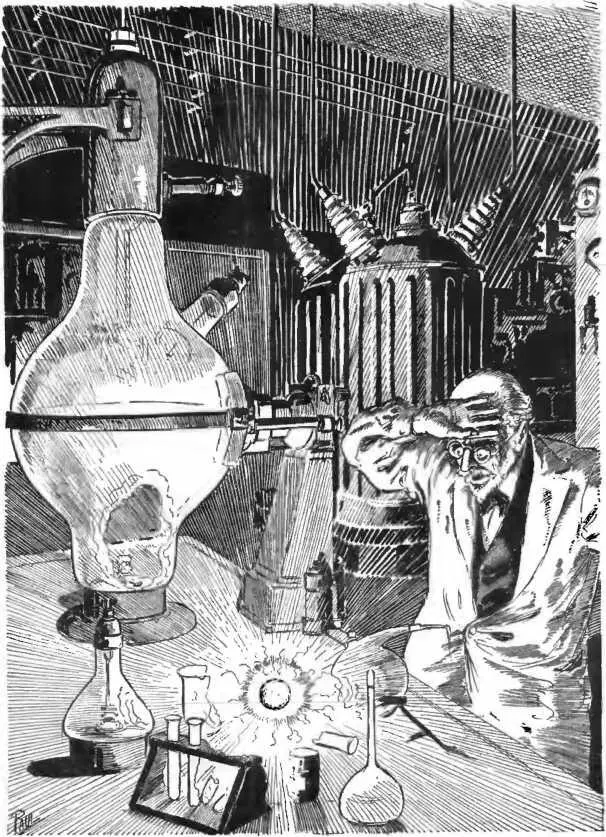
Having examined the remaining papers and documents, he discovered the absence of several which contained rough outlines of his recent work. Others embodied data which he kept secret, and which served him as connecting links for his future work.
He knew with certainty who stood behind this affair. It was quite clear that it was directed by one who knew his business thoroughly. For the past few years in Nancy, France, they were conducting experiments similar to his own. The little, dry, old man with that penetrating look in his deep-set eyes, gray tuft of hair on his forehead and sharp beard, whose photographs Flinder was examining with curiosity and animosity, in the “L'Illustration, directed this work and was stretching his avid and tenacious fingers in his direction. These two rivals had never met in their life, yet they hated each other with all the depth of feeling, of which each was capable in his own way.
Which of the two would be the first to harness this power and direct it by his own will, depended, to a great degree on the issue of the silent struggle between two nations, that struggle which, in fact has not ceased for a single moment, even after the cannon had ceased to roar and human flesh had ceased to be shot to pieces.
In to-day’s conflict, his opponent had the upper hand, a circumstance sufficient to spoil his best mood.
In addition, there was another unpleasant feature connected with this affair. Danger threatened from another side. For the past two years, a young Russian engineer commissioned here by Russia, had worked as a scientific collaborator in Flinder’s laboratory, commissioned by this amazing country, where only recently they had been feeding on human flesh and where people were dropping dead from hunger on the streets of the cities. This same country is now interested in electrification, in breaking up the atom, in the study of the nerve system and what not — which lines of work, according to Flinder, were not at all suited to savages and cannibals. At first, Deriugin, the Russian collaborator, displayed 110 qualities entitling him to any greater consideration than that given to his fellow-workers. In fact, he appeared rather to be possessed of a dull mind, or, at least, a mind not likely to lead him to the fore in this particular field. He worked along the lines of chemistry and radioactivity and, although this was in close contact with the research work of the professor, it never provoked any alarm in the latter’s mind.
Of late, however, it began to dawn upon Flinder that Deriugin knew more than he was willing to show; in fact, more than he was supposed to know. This, of course, was impossible to ascertain with any definiteness; nevertheless, after carefully observing the nature of some of his experiments not directly connected with his work, the professor began to divine the curious mind, persistent and bold, which was striving to fathom the great mystery. The glitter, which this somewhat round-shouldered man could not always extinguish, and which continued to glow in the depth of his eyes at lectures or during the hours of practice, whenever the subject of the breaking up of the atom came up, filled Flinder with discomfort and alarm.
Perhaps, there was more danger in this young man than in the little old man from Nancy. Something was happening right here, under his very eyes. And the thought of ridding himself of the uncomfortable collaborator began to occupy the professor’s' mind.
Eitel, the professor’s son, who was serving as a volunteer in the cavalry division of the Reichswehr, detested Deriugin with all the passion of his heavy and sad hatred. He had been telling his father, that if he were in his father’s place, he would have sent this “Moscow spy” to all the devils, or, at least, he would keep him from the laboratory at a distance of a cannon shot. Flinder was beginning to agree with his son’s contentions, now. But, after all, one must have some plausible excuse.
And all this is hardly calculated to serve as a cure for depressed spirits, not to mention the fact that the newspapers had been offering food for the most somber reflections every day. Those fellows beyond the Rhine, lost all control over themselves; they permitted themselves to go to the very limit. They continued to slap the back of the vanquished adversary, until it made Flinder clutch his fists and gasp for breath.
“Well, so be it,” he thought. “He laughs best, who laughs last— and this is their own adage. We shall see who will do the laughing. Flinder will give to Germany, that mighty, indomitable power, which he feels will soon flow in powerful torrents into his laboratory. We shall see! Yes, we shall see!”
Flinder pushed his unfinished cigar into the ash-tray with such disgust and anger, that a heap of ashes scattered over the table, and he left the room.
IT was dinner time, a meal which was observed with great precision in his home. At the window, drumming with his fingers on the glass, stood a tall young man in military uniform.
“Hello, father!” said the young man as he greeted his parent. “I met your red-headed Moscovy idiot again. When are you going to get rid of him? I just can’t look at him without disgust. He invariably spoils my temper, this Asiatic…”
The professor silently shrugged his shoulders.
At the table, Eitel began telling his father, who was listening very absent-mindedly, about his service, about the horses at the squadron- stables and about his fellow-soldiers, and he spoke with high esteem of his Colonel.
“By the way, he spoke of you with great respect; he said that Germany is much indebted to you and is expecting still more from you.”
The professor smiled. Queer though it was, yet it was pleasant to hear such recognition of his merits from the lips of a Hussar Colonel.
“But, what I was going to ask you, father,” he continued, “is to give me a general outline of your latest work. It seems to me that every Tom, Dick and Harry in our Casino knows more about it than I do.”
Flinder smiled again.
“I think you are right, my son. I shall do my best to enlighten you… Do you realize that man’s greatest problem on Earth is the struggle for energy, which he draws from nature in manifold forms?”
The Hussar shook his head.
“Each new explosive, each newly constructed machine, is a new, more convenient, cheaper, or more expedient method of pumping out new energy from the earth — that energy which moves our ships and trains, works our factories and mills, carries in the air our airplanes, drives our dirigibles, and hurls our projectiles over ranges of scores of miles. But the supply of the Earth’s coal is constantly diminishing; besides they have taken our coal away from us; nor have we oil… At the same time inexhaustible sources of energy are scattered all about us in abundance.”
“Where are they?”
“Everywhere; in this piece of iron lying on the table; in the puddles of filthy water in the streets; in the road- dust beneath our feet— wherever you turn your eyes.” “I do not understand.”
“Well — do you know what an atom is?”
Eitel smiled.
“I have heard something about it. I think it is something very small.”
“That’s right,” said the professor with an involuntary smile, “and in those infinitesimally small bricks, of which all bodies of the universe are made, all those colossal supplies of energy are stored. Atoms consist of concentrated, condensed electricity. They resemble an endless mass of miniature, tightly coiled springs, or, better still, little charges of powerful explosive matter. And when we learn to release the detent of those springs, to explode those charges and to control them and their energy, we will usher in a new era in the history of mankind; we shall enlist in our work the dormant power that lies about us; we shall flood the world with cheap and inexhaustible energy; we shall free mankind from the curse of unequal and strength- sapping toil; we shall direct it into new channels; we…”
“We shall first feed up our war weapons with that new power and dictate our terms to Paris and London…” interrupted Eitel, standing in the center of the room, with glittering eyes, threatening with his fists some region in space.
FLINDER turned on the current and shut the door of the laboratory behind him. A flood of light illumined the familiar picture, at once arresting one’s attention with the serenity and peacefulness of a working atmosphere. Wires in rigid lines stretched all over the walls; porcelain insulators, like ivory fingers, protruded here and there and between them; on the — tables and shelves sparkled glass utensils; brass parts of the apparatus glittered in yellow reflections; a marble switch board with its appliances and colored lamps, added a cold, yet solemn appearance to the spacious room.
Upon a large marble-top table, at the rear wall, stood a mechanical appliance, from which the work was to start. Flinder stopped before it with a feeling of inward satisfaction and throbbing expectation. Everything he saw before him was the reflection and incarnation of his thoughts. Each lever, each screw, each contact of the wires — everything to the minutest detail — up of atoms, by means of bombarding them with grains of helium, that are discharged by radioactive matter, he added the action of the electromagnetic field of high tension. This enhanced the speed of flight and the power of explosion of the miniature charges. And to-day he intended to test the influence of some admixtures upon activated nitrogen, admixtures that are dissolved in the tube with gas and represent minutest molecules.
He examined carefully the scheme of arrangement of the appliances and focused the microscope over the fluorescene stage over which the explosions were to register the path of the fragments of the atoms, and turned on the switch. A deep, heavy buzz of the transformer filled the room, as if a giant drone from out the wilderness of the night, beat his wings and whizzed upon the window-sill, shaking the concrete walls with his blows.
The professor turned off the light and looked into the microscope. There was the usual scene: like falling stars on a calm August night, flashes of racing atoms glimmered in the dark field, left and right, in the direction of the current; paths of light intersected the field of sight, crossing in places, indicating colliding, extinguishing and flashing up again, and strange seemed the silence in which this fiery rain was pouring down. Then, turning a small stop-cock, Flinder admitted into the tube of the apparatus a tiny cloud of dust, which was to serve as a stimulator and augmenter of the process. And at once the picture in the dark field changed. Into the pattern of fiery lines, broke in a volley of rays, scattering themselves in all directions like explosions of miniature charges. These' were no longer integral; the atoms were being scattered into tens and hundreds of fragments by the force of the bombardment. Microscopic worlds were being destroyed, silently rumbled the catastrophies, one after another splashing flashes of rays followed one another.
Читать дальшеИнтервал:
Закладка:
![Обложка книги Владимир Орловский - Машина ужаса [Фантастические произведения]](/books/1096680/vladimir-orlovskij-mashina-uzhasa-fantasticheskie-pr.webp)

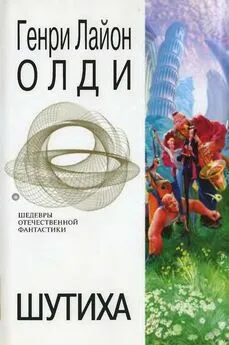
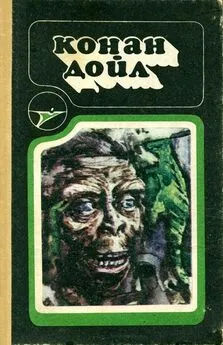
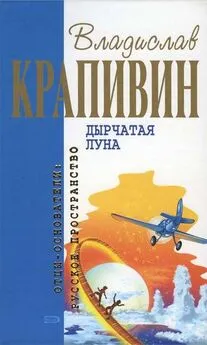
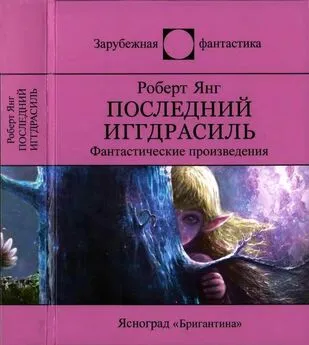

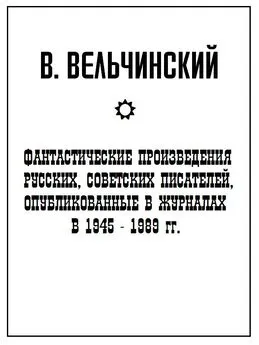
![Гарри Гаррисон - Пропавший лайнер : фантастические произведения [сборник]](/books/1086200/garri-garrison-propavshij-lajner-fantasticheskie-p.webp)
